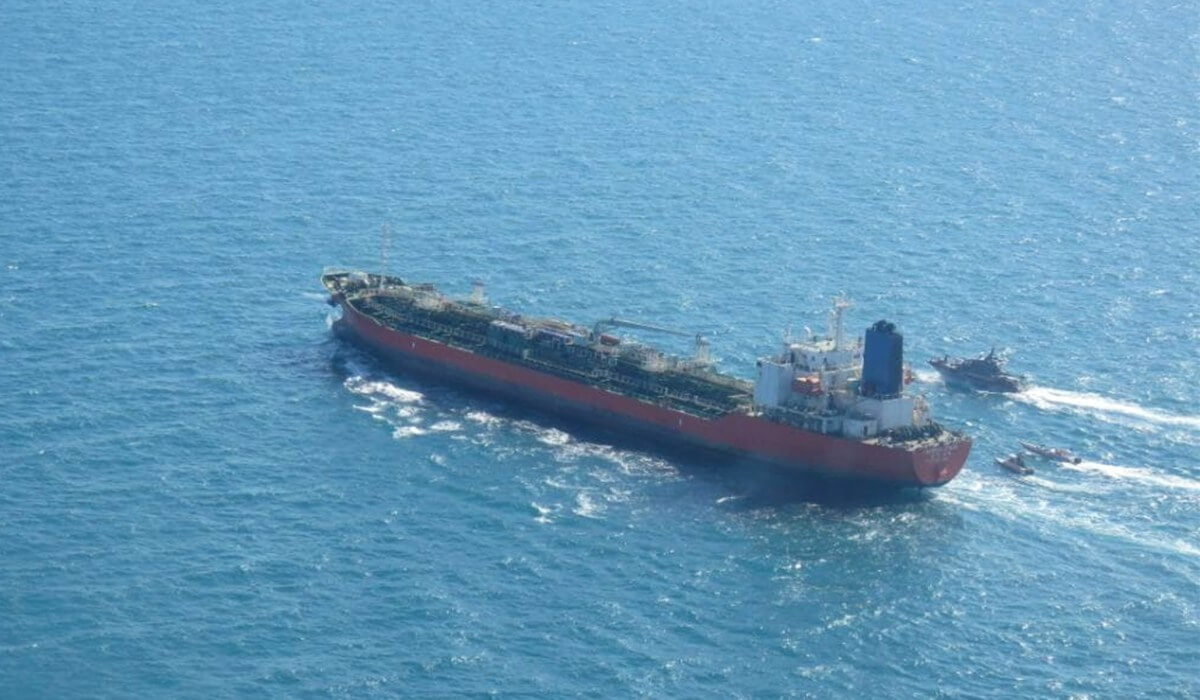Iranian authorities on Monday announced the country’s decision to increase its uranium enrichment to 20% purity, in what represents the biggest breach yet of the 2015 nuclear deal. Additionally, state media reported that Tehran seized a South Korean-flagged oil tanker in the Strait of Hormuz amid increasing tensions with the United States (US). Both moves came immediately after Tehran celebrated the one-year death anniversary of Iran’s top General Gen. Qassem Soleimani, who was killed by a US drone attack last year.
“The process for producing 20% enriched uranium has started at Shahid Alimohammadi enrichment complex (Fordow),” said government spokesperson Ali Rabiei in a statement posted on the website of the state broadcaster. He further noted that President Hassan Rouhani, had “ordered the enrichment in recent days and the gas injection process started as of hours ago (Monday)”.
This decision comes following the Iranian parliament’s approval last month to allow uranium enrichment under the draft law called the “Strategic Action Plan for Lifting the Sanctions and Protecting the Interests of the Iranian Nation”. The text passed by 251 votes in the 290-member parliament.
Tehran currently enriches its uranium stockpile up to around 4.5%, which is above the 3.67% cap imposed by the 2015 pact, but far short of the 90% that is considered weapons-grade. However, this latest move is a grave and significant violation of the 2015 Joint Comprehensive Plan Action (JCPOA) nuclear agreement signed by Iran with China, France, Germany, Russia, the United Kingdom (UK), and the United States (US).
In response to the Tehran’s announcement, Israeli Prime Minister Benjamin Netanyahu warned Iran and said, “Iran’s decision to continue violating its commitments, to raise the enrichment level and advance the industrial ability to enrich uranium underground, cannot be explained in any way except as the continued realisation of its intention to develop a military nuclear programme…Israel will not allow Iran to manufacture nuclear weapons.”
Meanwhile, the European Union’s (EU) spokesperson Peter Stano stated that Brussels “would wait until a briefing from the director of the UN’s International Atomic Energy Agency (IAEA) watchdog later in the day before deciding what action to take.”
Iran’s actions draw into question whether Tehran was being earnest in its recent comments that it would swiftly abide by its obligations under the JCPOA if President-elect Joe Biden lifted the current crippling sanctions on the country.
In other developments, Iran seized a South Korean- flagged oil-tanker - ‘MT Hankuk Chemi’ heading towards the United Arab Emirates (UAE) on Monday. Tehran justified its actions by alleging “oil pollution” on the tanker. However, tensions between Iran and South Korea have escalated following the freezing of Iranian funds in South Korean banks due to US sanctions. South Korea’s foreign minister, Kang Kyung-Wha, confirmed that a South Korean chemical tanker had been taken by Iranian authorities in the waters off Oman, and demanded its immediate release. South Korea also deployed an anti-piracy unit to the Strait of Hormuz.
Iran Ramps up Its Uranium Enrichment to 20% and Seizes Korean Tanker
Iran resumed enriching uranium to 20% purity, in its most significant breach yet of the 2015 nuclear deal.
January 6, 2021

SOURCE: THE BRITISH JOURNAL
